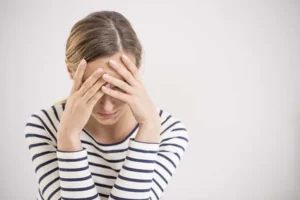Living with bipolar disorder can be a daily struggle, with mood swings and emotional highs and lows. For many, this battle is made even harder by the lure of substance abuse as a way to cope. If you or a loved one is dealing with this difficult combination, you know how overwhelming it can be.
In this blog, we’ll explore the complex relationship between bipolar disorder and substance abuse. You’ll learn why people with bipolar disorder are more likely to turn to drugs or alcohol, how these substances can worsen their condition, and the signs to watch out for. Most importantly, we’ll discuss effective treatment strategies and how to find support for recovery.
Join us as we uncover how to manage both bipolar disorder and substance abuse, providing hope and practical solutions for a healthier future.
Contents
- 1 Understanding Bipolar Disorder and Substance Abuse
- 2 How Bipolar Disorder Can Lead to Substance Abuse
- 3 The Impact of Substance Abuse on Bipolar Disorder Symptoms
- 4 Common Substances Abused by Individuals with Bipolar Disorder
- 5 Warning Signs of Substance Abuse in Individuals with Bipolar Disorder
- 6 Effective Treatment Strategies for Co-occurring Bipolar Disorder and Substance Abuse
- 7 Preventing Substance Abuse in Individuals with Bipolar Disorder
- 8 Conclusion
Understanding Bipolar Disorder and Substance Abuse
 Bipolar disorder is a mental health condition characterized by extreme mood swings, including emotional highs (mania or hypomania) and lows (depression). These mood shifts can be intense and disruptive, affecting daily life, relationships, and overall well-being.
Bipolar disorder is a mental health condition characterized by extreme mood swings, including emotional highs (mania or hypomania) and lows (depression). These mood shifts can be intense and disruptive, affecting daily life, relationships, and overall well-being.
Substance abuse, on the other hand, involves the harmful or hazardous use of psychoactive substances, including alcohol and illicit drugs. When a person struggles with substance abuse, they continue using these substances despite the negative consequences.
Understanding the connection between bipolar disorder and substance abuse is crucial because the two often coexist. People with bipolar disorder might turn to drugs or alcohol as a way to manage their symptoms. For instance, they might use stimulants to escape depressive episodes or alcohol to calm the agitation of mania. Unfortunately, this self-medication can worsen the symptoms of bipolar disorder, creating a vicious cycle that’s hard to break.
How Bipolar Disorder Can Lead to Substance Abuse
Bipolar disorder can significantly impact a person’s life, often leading to substance abuse as a form of self-medication. The intense mood swings, ranging from manic highs to depressive lows, create a challenging environment that some individuals try to manage with drugs or alcohol. Here’s how the symptoms of bipolar disorder can increase the likelihood of substance abuse:
- Mood Swings: During depressive episodes, individuals may feel overwhelming sadness, hopelessness, and fatigue. To escape these feelings, they might turn to alcohol or drugs for temporary relief. On the flip side, during manic or hypomanic episodes, the heightened energy and euphoria can lead to reckless behavior, including drug and alcohol use.
- Impulsivity: Impulsivity is a common trait in people with bipolar disorder, especially during manic episodes. This impulsiveness can lead to risky behaviors, such as experimenting with substances without considering the long-term consequences.
- Sleep Disturbances: During depressive episodes, individuals might experience insomnia or hypersomnia, while manic episodes can lead to very little sleep. Some people might use substances like alcohol or sedatives to help them sleep, inadvertently creating a dependency.
- Social Pressure and Isolation: People with bipolar disorder might feel isolated due to their condition, leading them to use substances as a way to fit in socially or cope with loneliness. Conversely, the social stigma associated with bipolar disorder can lead to increased isolation, driving individuals to substance abuse as a means of self-soothing.
By recognizing the ways bipolar disorder can lead to substance abuse, individuals and their healthcare providers can develop more comprehensive treatment plans that address both conditions simultaneously.
The Impact of Substance Abuse on Bipolar Disorder Symptoms
 Substance abuse can significantly worsen the symptoms of bipolar disorder, making the condition much harder to manage. Here are several ways in which substance abuse can exacerbate bipolar disorder:
Substance abuse can significantly worsen the symptoms of bipolar disorder, making the condition much harder to manage. Here are several ways in which substance abuse can exacerbate bipolar disorder:
- Drugs and alcohol can intensify mood swings.
- Alcohol and drugs can interfere with the effectiveness of mood stabilizers and other medications used to treat bipolar disorder. w
- Alcohol is a central nervous system depressant, which can deepen depressive episodes in people with bipolar disorder.
- Stimulants such as cocaine and methamphetamine can trigger or worsen manic episodes. The increased energy and euphoria from these substances can push someone with bipolar disorder into a manic state, resulting in reckless behavior, impulsivity, and even psychosis.
- Both bipolar disorder and substance abuse independently raise the risk of suicide. When combined, the risk is even higher. The intense emotional pain and impulsivity associated with both conditions can lead to suicidal thoughts and actions.
- Long-term substance abuse can cause cognitive impairments, such as memory loss, difficulty concentrating, and impaired judgment.
- Substance abuse can lead to significant problems in personal relationships, work, and other areas of life. These added stresses can trigger or worsen mood episodes.
Understanding the detrimental impact of substance abuse on bipolar disorder is crucial for effective treatment. It highlights the importance of addressing both conditions simultaneously to improve overall well-being and achieve long-term stability.
Common Substances Abused by Individuals with Bipolar Disorder
Individuals with bipolar disorder may turn to various substances to self-medicate or cope with their symptoms. Here are some of the most commonly abused substances and why they might be particularly appealing:
- Alcohol
- Marijuana
- Cocaine
- Prescription Stimulants (e.g., Adderall, Ritalin)
- Opioids (e.g., painkillers like OxyContin, Vicodin)
- Benzodiazepines (e.g., Xanax, Valium)
- Hallucinogens (e.g., LSD, psilocybin mushrooms)
Understanding the types of substances commonly abused by individuals with bipolar disorder is crucial for developing effective treatment plans. Recognizing the appeal of these substances can help in addressing the underlying reasons for their use and finding healthier coping mechanisms.
Warning Signs of Substance Abuse in Individuals with Bipolar Disorder
Recognizing substance abuse in individuals with bipolar disorder can be challenging, as some symptoms may overlap with the disorder itself. However, there are specific signs and symptoms that can indicate substance abuse, signaling the need for intervention:
- Increased Tolerance:
- Needing to use more of a substance to achieve the same effect.
- Frequent escalation in dosage or consumption.
- Changes in Behavior:
- Sudden or dramatic shifts in mood that are not typical of bipolar episodes.
- Increased secrecy or lying about activities and whereabouts.
- Isolation from friends and family.
- Neglecting Responsibilities:
- Failing to meet obligations at work, school, or home.
- Decreased performance or attendance in important areas of life.
- Physical Symptoms:
- Unexplained weight loss or gain.
- Changes in sleep patterns, such as insomnia or excessive sleeping.
- Bloodshot eyes, unusual body odors, or poor personal hygiene.
- Financial Problems:
- Unexplained need for money or financial difficulties.
- Spending large amounts of money on substances.
- Risky Behavior:
- Engaging in dangerous activities while under the influence, such as driving or unsafe sexual practices.
- Increased impulsivity and recklessness beyond typical bipolar symptoms.
- Legal Issues:
- Frequent run-ins with law enforcement.
- Legal troubles related to substance use, such as arrests for possession or DUI.
- Relationship Strain:
- Conflicts with loved ones over substance use.
- Withdrawal from social activities and support networks.
- Changes in Appearance:
- Neglecting personal grooming and appearance.
- Noticeable deterioration in physical health.
- Mental Health Decline:
- Worsening symptoms of depression or mania.
- Increased anxiety, paranoia, or other mental health issues.
- Frequent Intoxication or Withdrawal:
- Regularly appearing intoxicated or high.
- Experiencing withdrawal symptoms when not using the substance, such as nausea, shaking, or irritability.
- Loss of Interest in Activities:
- Losing interest in hobbies or activities that were once enjoyable.
- Spending more time using substances than engaging in other activities.
Recognizing these warning signs is crucial for early intervention and getting the necessary help. If you or someone you know is exhibiting these symptoms, it may be time to seek professional assistance to address both bipolar disorder and substance abuse.
Effective Treatment Strategies for Co-occurring Bipolar Disorder and Substance Abuse

Managing both bipolar disorder and substance abuse simultaneously can be challenging, but effective treatment strategies can lead to significant improvement in overall well-being. Here are some approaches that can help:
Integrated Treatment Programs
- Comprehensive Care: Programs that address both bipolar disorder and substance abuse in a coordinated manner.
- Collaborative Approach: Involves a team of healthcare professionals, including psychiatrists, therapists, and addiction specialists, working together.
Medication
- Mood Stabilizers and Antipsychotics: Medications like lithium, valproate, and antipsychotics can help manage bipolar symptoms.
- Medication for Substance Abuse: Medications such as naltrexone or disulfiram can help reduce cravings and prevent relapse.
Cognitive Behavioral Therapy (CBT)
- Addressing Thought Patterns: Helps patients identify and change negative thought patterns and behaviors related to both bipolar disorder and substance abuse.
- Coping Strategies: Teaches effective coping mechanisms to deal with triggers and stressors.
Dialectical Behavior Therapy (DBT)
- Emotion Regulation: Focuses on managing intense emotions that can lead to substance use.
- Mindfulness: Encourages mindfulness practices to stay present and reduce impulsive behaviors.
Motivational Interviewing
- Enhancing Motivation: Helps individuals find the motivation to make positive changes in their lives.
- Goal Setting: Works with patients to set realistic and achievable goals for recovery.
Support Groups
- Peer Support: Groups like Alcoholics Anonymous (AA) or Narcotics Anonymous (NA) provide a supportive community.
- Dual Diagnosis Groups: Specialized groups that focus on the unique challenges of managing both bipolar disorder and substance abuse.
Family Therapy
- Family Involvement: Engages family members in the treatment process to provide support and improve communication.
- Education: Educates families about bipolar disorder and substance abuse to reduce stigma and increase understanding.
Lifestyle Changes
- Healthy Routines: Encourages establishing a stable daily routine, including regular sleep, exercise, and healthy eating.
- Stress Management: Teaches stress management techniques such as meditation, yoga, and relaxation exercises.
Relapse Prevention
- Recognizing Triggers: Helps individuals identify and manage triggers that could lead to relapse.
- Developing a Plan: Creates a detailed relapse prevention plan, including steps to take if a relapse occurs.
Continuous Monitoring and Support
- Regular Check-ins: Ensures ongoing monitoring of progress and adjustment of treatment plans as needed.
- Long-term Support: Emphasizes the importance of long-term support and follow-up care.
Combining these treatment strategies can provide a comprehensive approach to managing both bipolar disorder and substance abuse, leading to improved outcomes and a better quality of life.
Preventing Substance Abuse in Individuals with Bipolar Disorder
Preventing substance abuse in individuals with bipolar disorder involves a combination of strategies aimed at managing bipolar symptoms and reducing the risk of turning to substances for self-medication. Here are some effective prevention tips:
- Stick to treatment plans
- Identify triggers
- Practice stress-reducing techniques such as mindfulness, meditation, or yoga.
- Engage in regular physical activity to improve mood and overall well-being.
- Eat a nutritious diet to support physical and mental health.
- Maintain a regular sleep schedule to help stabilize mood.
- Surround yourself with supportive, understanding people who can offer encouragement and help.
- Keep track of your mood, substance use, and any triggers or warning signs.
By implementing these strategies, individuals with bipolar disorder can reduce the risk of substance abuse and maintain a healthier, more stable lifestyle. If you or someone you know is struggling with substance abuse, seek help from a healthcare professional or mental health provider.
Conclusion
In conclusion, managing bipolar disorder and preventing substance addiction requires a proactive approach that includes adherence to treatment plans, healthy lifestyle choices, and building a strong support network. By taking these steps, individuals can reduce the risk of substance abuse and lead healthier, more fulfilling lives.
If you or someone you know is struggling with substance abuse, don’t hesitate to seek help. Visit QuitMantra to learn more about our programs and how we can support you on your journey to recovery. Remember, you’re not alone, and help is available.
